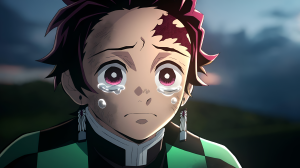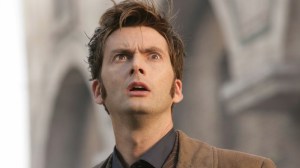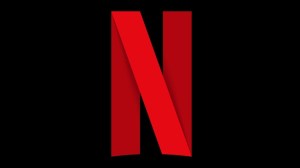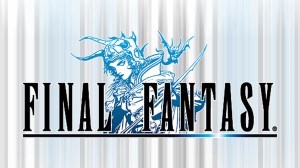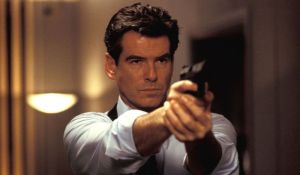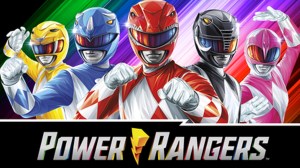The first trailer for Joker is now out, and as expected, it has been nothing short of divisive. The DC Standalone film from director Todd Phillips will imagine an origin story for Batman‘s greatest nemesis, and Academy Award nominee Joaquin Phoenix will bring this version of Joker to life onscreen. Joker seems like a pretty straightforward concept for a DC movie, but a lot of fans seem to be having a big problem with it.
Videos by ComicBook.com
For every DC fan praising Joker right now, there seem to be two more who are complaining about it or hating on it. Opinions about movies are always subjective, no doubt, but in the case of Joker, there seem to be big misconceptions and specious logic that are being unfairly aimed at the film.
…That’s all to say that a lot of DC fans seem to be missing the deeper point of what Joker is all about, and why it could be one of the more important Batman universe stories we’ve gotten.
Not a “Comic Book Movie”

The first thing that a lot of casual moviegoers seem to be confused about is what kind of genre Joker belongs in. The film is not a “comic book movie” in the sense that a lot of fans seem to be applying the term; it was never going to be something that would sync with the DC Extended Universe brand, and was never supposed to include Jared Leto’s Joker.
Joker is exactly what its IMDb listing labels it as: A drama, a thriller, a hard-boiled crime story – just one that happens to feature one the more iconic comic book villains of all time. If you saw the trailer and thought this was ‘Scorsese-meets-Supervillain’ then you’re on the right track. If you were upset because this doesn’t look like a Suicide Squad or Dark Knight prequel, then your expectations were way off-base to begin with.
The irony here, of course, is that Christopher Nolan proved with The Dark Knight that taking Batman lore out of a comic book tone and marrying it to something like a hard-boiled crime thriller can work wonders. Yet Joker seems to be making people angry for attempting to do that very same thing.
It’s Been Done Before

The argument that a lot of DC fans are also making is that The Joker is a character who is not suited to an origin story. The thought is that Joker is somehow best left unexplained – a “force of nature” of or agent of chaos, who swoops in and turns Gotham upside-down. The problem is, that assessment of The Joker is largely born of Heath Ledger’s Dark Knight version of the character; in actual fact, Joker has previously had iconic origin stories on both the page and screen, that fans embrace wholeheartedly.
Before Ledger’s Joker became an icon after The Dark Knight‘s release, we were in a very similar situation as where we are now. Early reveals of Ledger’s Joker concept were met with tons of speculation and hate from DC fans; at the time (mid-2000s), fans swore up and down that Jack Nicholson’s Joker couldn’t be topped – a version of the villain who definitely got a complete origin story (and one oh-so-coincidentally tied directly to Batman), in Tim Burton’s Batman (1989).
Nicholson’s Jack Napier / Joker origion became *the* iconic version of the character at the time. The same year that movie was in shooting (1988), another Joker origin story was carving out its place in DC Comics lore: Alan Moore’s The Killing Joke. That story has since influenced everything form Heath Ledger’s version of the Joker, to what Todd Phillips and Joaquin Phoenix are working with in Joker. A few social media revisionists are now trying to diminish The Killing Joke as something less than the iconic story it is, but the fact remains that DC has been allowing the Joker’s backstory to be explored for decades now – as well they should. After all, it’s been an equally big part of DC Comics tradition to explore every angle of possibility with a character – a process otherwise known as:
“Elseworlds”

Let’s be clear: One of the entire points of Joker is that DC Films and Warner Bros. are launching a new branch of DC standalone films, which allow DC characters to be explored in fresh, bold, and exciting ways, with strong creative visionaries helping to shape those tales. That’s not only an exciting new addition to the DC Films franchise, it’s also a time-honored part of the DC brand, overall.
DC’s “Elseworlds” line has produced some of the most famous spins on traditional hero/villain lore – such as Super: Red Son, Batman: Gotham by Gaslight, Flashpoint and Kingdom Come, to name a few. Even when certain stories aren’t specifically branded as “Elseworlds,” fans’ love of that imaginative imprint has allowed DC to play loose with superheor continuity to create now-iconic stories like The Dark Knight Returns or an entire “All-Star” Imprint that has produced new iconic stories like All-Star Superman.
In short: it is an honored tradition for DC Comics to explore alternative stories of its big characters. So if you call yourself a “DC Fan,” but can’t even entertain the notion of Joker existing as a film? You may have to re-examine what your fandom is all about.
Sign of the Times

If you walked away feeling like Joker looks like DC’s version of Taxi Driver, you’re not alone. In fact, there are quite a few references to classic pieces of cinema hidden in Joker‘s footage, that lend great relevance to what this movie is trying to accomplish on a thematic level.
The Scorsese connection is pretty pronounced – which isn’t surprising, since Martin Scorsese was attached to the film as a producer, early on in the process (not anymore though). There’s even a direct homage to Scorsese’s The King of Comedy in the Joker trailer and poster – including an appearance from Robert De Niro, flipping around his King of Comedy character Rupert Pupkin, a struggling comedian who goes to deranged criminal lengths to get his big break (in Joker De Niro seems to be playing a TV host like the one Pupkin kidnaps and blackmails). However, there two other films that seem to be the deeper inspirations for Joker’s dark thematic arc: Scorsese’s Taxi Driver and the 1936 Charlie Chapman film, Modern Times.
Taxi Driver of course tells the story of a mentally disturbed man who is psychologically drowning in the crime, corruption, and squalor of 1970s NYC (Robert De Niro’s Vietnam vet Travis Bickle). After a slow-burn powder keg buildup over course of the film, Bickle’s repressed rage explodes in a violent vigilante rampage that leaves many dead. Chapman’s Modern Times is actually featured in the Joker trailer, as the film event playing at Wayne Hall, where Phoenix’s character falls down some red-carpeted stairs. Modern Times follows a factory worker (Chapman) who constantly tries to make it in the new industrialized era of urban America, only to find the issues of the day (from unsafe labor conditions to shifting politics) crashing into his life and impeding his progress toward success and happiness.
It’s no mistake that Joker is invoking these films – nor is it coincidental that the film is set in 1981, which is another pivotal epoch in American history. The early ’80s era of Regan gave rise to The War on Drugs and crack epidemic; the Gordon Gekko era of “Greed is Good” capitalism; the big turn in how we care for the mentally ill (or not); the anxiety of the Cold War and nuclear annihilation always hanging overhead – and so much more. Both Modern Times and Taxi Driver dealt with the psychological burdens of changing times within the urban landscape, and much of what we see in Joker’s trailer suggests the story of Arthur Fleck (Phoenix) will be used as a similar metaphoric vehicle framed against real-world soico-political events of the ’80s, which also happen to be the roots of major problems still plaguing America society now.
That’s all to say: in this tale, we’re not just talking about The Joker as a comic book icon of the chaos that stands opposite of Batman’s symbol of justice. Phillips, Phoenix and DC Films seem to be elevating The Joker into a symbol of something much, much bigger with this film, and not only could it make the character more relevant than he has ever been – it could also be something that only strengths his relevance to Batman and Batman lore.
This Is Gotham

The subtle details of the Joker trailer show Joaquin Phoenix’s Arthur Fleck having to deal with the horrific reality that he’s living in an environment (Gotham City) that is literally and figuratively eating away at him. It’s not just in scenes where his mind is obviously troubled and threatening to crack, but also in those ‘body horror’ moments where Fleck strains, stretches, and contorts, while reflecting on the fact that the city is getting crazier, darker, and more violent. The whole idea that Joker seems to present is that it is Gotham City itself (a reflection of real urban America in the ’80s), which ultimately creates one of the worst monsters it’s ever seen, an enduring symbol of evil and chaos that has captured the pop-culture zeitgeist and never let go.
Feel how you will about the possible socio-political messages in that thematic arc, there is something important to recognize about its comic book relevance: The idea that The Joker is a direct result and reflection of Gotham in its darkest crime-ridden period, forms a powerful counterpoint to Batman becoming an opposing reflection of law and order against that darkness. It connects the two foes on yet another powerful level, as two men victimized and scarred by the same hellish environment, who make two very different choices about what to do with that pain.
In that sense, Joker doesn’t need Batman to be a part of the story: we already have so many stories about how and why Gotham’s ills inspired Bruce Wayne to become a symbol of justice criminals fear. Now it’s time to explore the other side of that coin a little deeper.
Are you excited to see what Joker can add to the character’s legacy and/or the Batman mythos? Let us know in the comments!
The DC Movie Universe continues with Shazam on April 5th, Joker on October 4th, Birds of Prey on February 7th, 2020, Wonder Woman 1984 on June 5th, 2020, and The Batman on June 25th, 2021.
—–
Have you subscribed to ComicBook Nation, the official Podcast of ComicBook.com yet? Check it out by clicking here or listen below.
In this latest episode, we talk about that Joker trailer, WWE Wrestlemania 35 and more! Make sure to subscribe now and never miss an episode!
Photo Credit: Ledger/Phoenix Batmen Photo by Toyscorp

